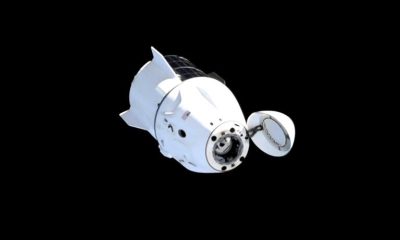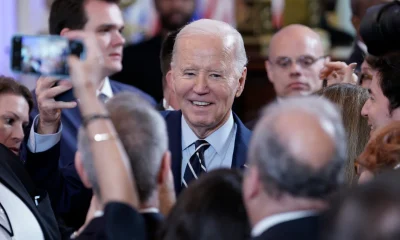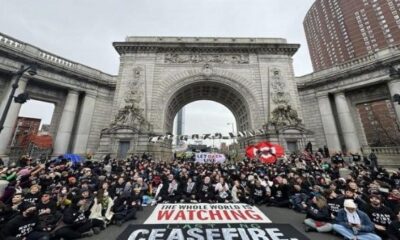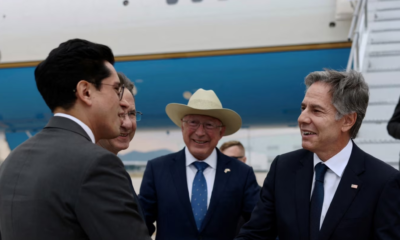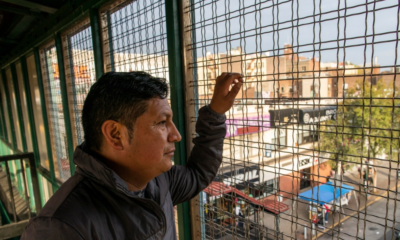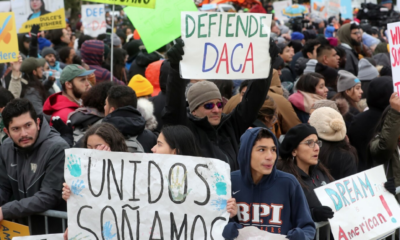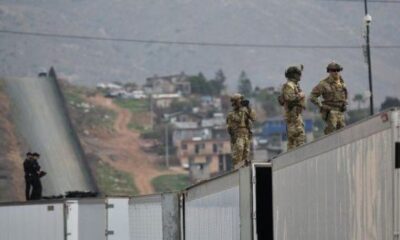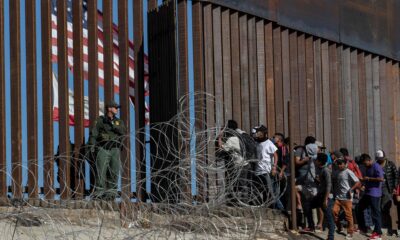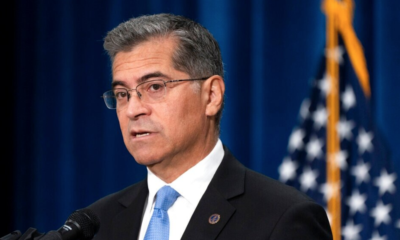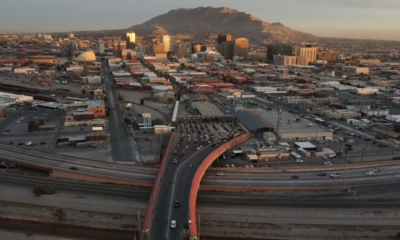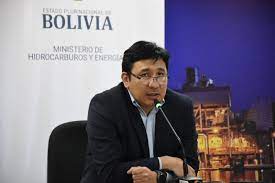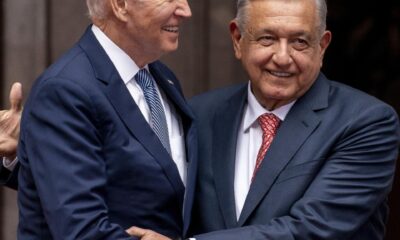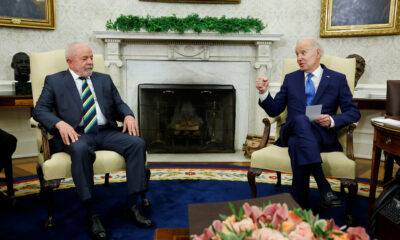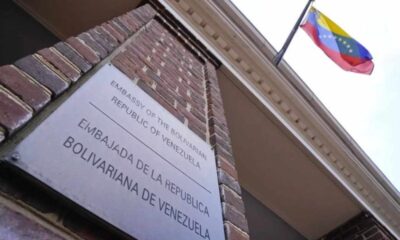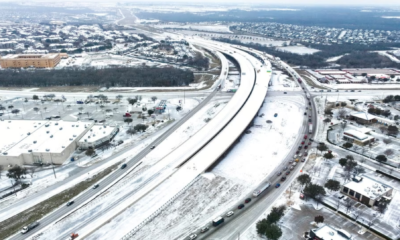International
Final preparations underway for NASA’s Moon rocket launch
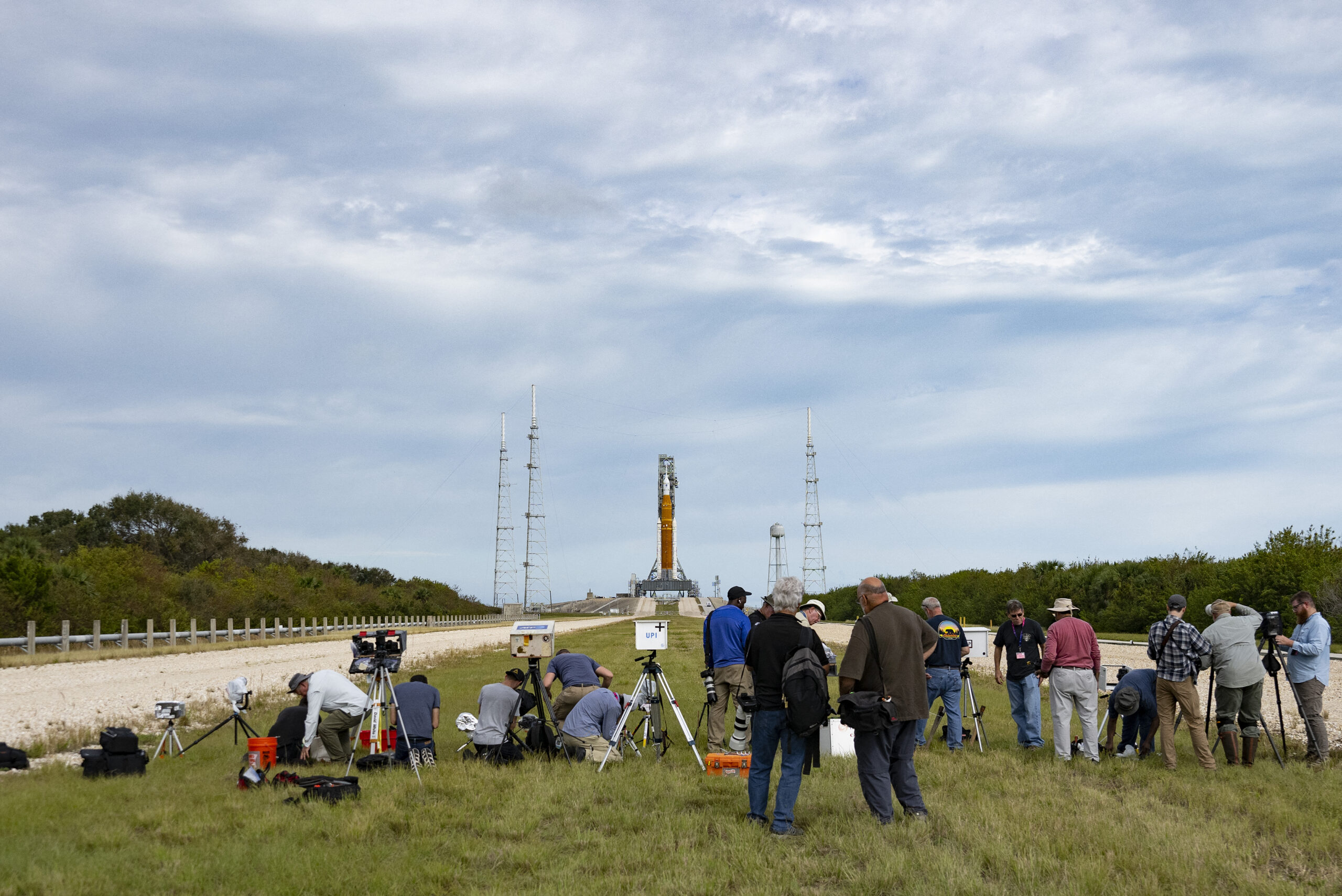
| By AFP | Lucie Aubourg |
After two failed attempts this summer, NASA was busy Monday completing final preparations for the launch of its new mega Moon rocket, now scheduled for early Wednesday from Florida.
The Artemis 1 mission, a test flight without astronauts, represents the first step in the US space agency’s plan to build a lasting presence on the Moon, and taking lessons from there to prepare for a future voyage to Mars.
Named after the sister of Apollo in Greek mythology, the new space program comes 50 years after humans last set foot on lunar soil.
The first launch of the Space Launch System rocket, the most powerful ever designed by NASA, is set for Wednesday at 1:04 am local time (0604 GMT), with a possible launch window of two hours.
Countdown has already begun at the storied Kennedy Space Center, where the orange and white behemoth awaits its maiden flight.
The takeoff is scheduled less than a week after the passage of Hurricane Nicole, which the rocket endured outside on its launch pad.
For now, officials are evaluating the risk associated with hurricane damage to a thin strip of caulk-like material called RTV, which encircles the Orion crew capsule atop the rocket, and makes it more aerodynamic.
Teams are looking at whether the RTV could shake loose during launch and pose problems.
Two fallback dates are possible if needed, on November 19 and 25.
But Mike Sarafin, in charge of the Artemis 1 mission, was optimistic Sunday evening. “I feel good headed into this attempt,” he said.
Far side of Moon
The weather promises to be mild, with a 90 percent chance of favorable conditions during the launch window.
At the end of September, the rocket had to be wheeled back to its assembly building to be sheltered from another hurricane, Ian, postponing the mission by several weeks.
Before these weather setbacks, two launch attempts had to be canceled for technical reasons.
The first failure was related to a faulty sensor, and the second to a fuel leak when filling the rocket’s tanks. It runs on ultra-cold, ultra-volatile liquid oxygen and hydrogen.
NASA has since replaced a seal and modified its procedures to avoid thermal shock as much as possible, and succeeded in a tank filling test in late September.
These filling operations are now due to begin Tuesday afternoon, under the orders of Charlie Blackwell-Thompson, NASA’s first female launch director.
About 100,000 people are expected on the coast to watch the launch, with the rocket promising to light up the night sky.
The Orion capsule will be lifted by two boosters and four powerful engines under the core stage, which will detach after only a few minutes.
After a final push from the upper stage, the capsule will be well on its way, taking several days to reach its destination.
Rather than landing on the Moon, it will assume a distant orbit, venturing 40,000 miles (64,000 kilometers) beyond Earth’s natural satellite — further than any other habitable spacecraft so far.
Finally, Orion will embark on the return leg of its journey. When passing through the atmosphere, the capsule’s heat shield will need to withstand a temperature half as hot as the Sun’s surface.
If takeoff happens Wednesday, the mission would last 25 and a half days in all, with a splashdown in the Pacific Ocean on December 11.
NASA is banking on a successful mission after developing the SLS rocket for more than a decade. It will have invested more than $90 billion in its new lunar program by the end of 2025, according to a public audit.
Artemis 2 will be almost a replay of the first mission, albeit with astronauts, in 2024.
Boots on the ground should happen during Artemis 3, no sooner than 2025, with the crew set to include the first woman and first person of color on the Moon.
NASA then wants to launch around one mission per year and build a lunar space station called Gateway. There, humanity must learn to live in deep space and develop the technologies necessary for a round trip to Mars, perhaps in the late 2030s.
International
Trump Floats “Friendly Takeover” of Cuba Amid Rising Tensions

U.S. President Donald Trump said Friday that his administration is considering what he described as a “friendly takeover” of Cuba, as Washington continues to increase pressure on the island’s communist government.
“The Cuban government is talking to us and they have very serious problems, as you know. They have no money, they have nothing at this moment, but they are talking to us and maybe we will see a friendly takeover of Cuba,” Trump told reporters as he departed the White House for a trip to Texas.
Earlier in the week, U.S. Secretary of State Marco Rubio said Cuba needed a “radical change,” shortly after Washington eased restrictions on oil exports to the island for what officials described as “humanitarian reasons,” amid a deep economic crisis.
The United States has imposed an energy blockade on Cuba since January, citing what it calls an “extraordinary threat” posed by the communist-run island, located roughly 150 kilometers (90 miles) off the coast of Florida, to U.S. national security.
International
Argentina’s Senate Reviews Milei-Backed Labor Overhaul

Argentina’s Senate on Friday began reviewing the Labor Modernization Law promoted by the administration of President Javier Milei, a proposal that would significantly reshape labor rules across the country.
The upper chamber opened its final discussion of the contentious initiative, which revises the method used to calculate severance payments — lowering the amounts owed in dismissal cases — and introduces an “hour bank” mechanism that allows overtime to be offset with paid leave rather than extra wages.
The legislation also broadens the classification of essential services, a change that would place new limits on the right to strike in designated sectors.
The bill was initially approved by the Senate on February 11 and then moved to the Chamber of Deputies, where lawmakers passed it with amendments. It has now returned to the Senate for definitive approval.
Outside the Congress building in Buenos Aires, workers, trade unions and left-wing organizations staged demonstrations beginning at midday. The gathering later thinned out amid reports of disturbances and a strong police presence. Security forces had secured the area surrounding the legislature since early morning hours.
Union leaders contend that the reform weakens labor protections, while many business representatives back the measure but stress that sustainable formal employment will require economic expansion, improved credit conditions, greater investment and a more dynamic domestic market.
International
Federal Judge Blocks Trump Policy Allowing Deportations to Third Countries

A federal judge ruled on Wednesday that the policy of U.S. President Donald Trump’s administration allowing immigration authorities to deport foreign nationals to third countries without prior notice or the opportunity to object is unlawful. The decision marks another legal setback for the administration on immigration matters.
Judge Brian Murphy of the U.S. District Court for the District of Massachusetts struck down the regulation issued last year, which stated that Immigration and Customs Enforcement (ICE) was not required to notify migrants if they were to be sent to countries other than the one listed in their removal order, provided that receiving nations offered assurances they would not face persecution or torture.
Murphy ordered the measure vacated but granted a 15-day delay before the ruling takes effect, giving the Trump administration time to file an appeal.
In his decision, the judge concluded that the policy violates federal immigration law and migrants’ due process rights. He also questioned the lack of transparency surrounding the alleged assurances provided by receiving countries, stating that “no one really knows anything about these supposed ‘assurances.’” He added, “It is not right, and it is not lawful.”
The ruling follows several legal disputes involving deportations to third countries. Last year, the executive branch deported more than 200 Salvadorans to a maximum-security prison in El Salvador, invoking an old wartime law. The White House also held talks with Costa Rica, Panama, and Rwanda about receiving migrants who are not citizens of those countries.
In May, the same judge determined that the government violated a court order when it attempted to remove a group of immigrants with criminal records to South Sudan without prior notice or an opportunity to raise claims of fear of persecution.
Although President Donald Trump took the case to the U.S. Supreme Court, which temporarily allowed the deportations to resume while a final decision was pending, the White House is expected to again appeal to higher courts to overturn this latest judicial ruling.
-

 International3 days ago
International3 days agoFamily of “El Mencho” Seeks Return of Body After Deadly Military Operation
-

 International3 days ago
International3 days agoLarry Summers Steps Down from Harvard Role Amid Epstein Controversy
-

 International3 days ago
International3 days agoIran’s President Optimistic Ahead of Geneva Nuclear Talks with U.S.
-

 International3 days ago
International3 days agoBill Gates Admits “Serious Mistake” Over Epstein Ties
-

 International3 days ago
International3 days agoStephen Hawking Photo Appears in Newly Released Epstein Documents
-

 International2 days ago
International2 days agoCocaine Production Surges 34% in 2023 as Market Expands into Africa and Asia
-

 International2 days ago
International2 days agoFederal Judge Blocks Trump Policy Allowing Deportations to Third Countries
-

 International2 days ago
International2 days agoClinton Accuses Republican Committee of Using Epstein Case to Shield Trump
-

 International22 hours ago
International22 hours agoArgentina’s Senate Reviews Milei-Backed Labor Overhaul
-

 International22 hours ago
International22 hours agoTrump Floats “Friendly Takeover” of Cuba Amid Rising Tensions



























